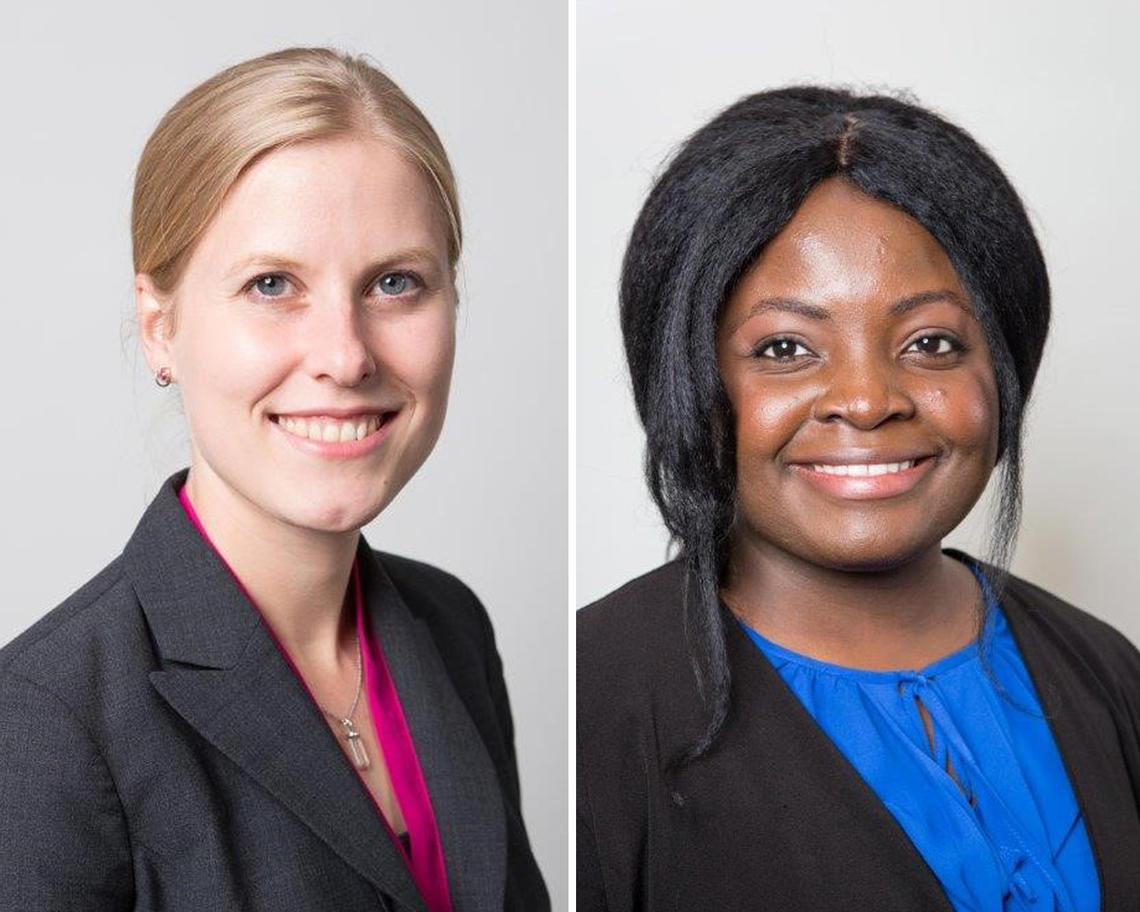
Marina Spahlinger, left, and Nancy Wanye.
School of Public Policy
March 26, 2019

Marina Spahlinger, left, and Nancy Wanye.
School of Public Policy
What do Edmonton’s glittering new Arena District, Calgary’s complete overhaul of its Rivers District and two recent Master of Public Policy (MPP) grads at The School of Public Policy have in common? New insight on a flexible financial tool for local governments known in Alberta as the community revitalization levy (CRL).
On Feb. 21, The School of Public Policy released a research report authored by two of its MPP graduates, Marina Spahlinger, MPP'18, and Nancy Wanye, MPP'17, titled Community Revitalization Levy as a Municipal Financing Mechanism in Alberta. Spahlinger and Wanye are the first two Master of Public Policy grads to be published in The School of Public Policy's publication series.
In general terms, a community revitalization levy is a financial tool available to municipalities to borrow against future property tax revenues to help pay for infrastructure required to spark new development in a specific area — in this case, Calgary’s Rivers District and Edmonton’s Capital City Downtown Plan.
The report outlines a framework for the effective use and implementation of CRLs and the real risks involved if not used correctly. Cities that use them need to ensure they follow certain defined principles. Without those safeguards, Calgary’s Rivers District and Edmonton’s Capital City Downtown Plan may not be the deal citizens expect. The researchers also identified a lack of clarity of whether new projects funded by the CRL will be in the public’s best interest at all.
According to the report, “A CRL should only be used if it can be demonstrated that it is in fact the best available financial tool to incentivize private investment and that it leads to long-term sustainable development of the revitalized area. In the case of Calgary’s River District, it appears that those tests were not properly met, and so it is unclear whether the CRL really was the best financial tool available for the city to use in its effort to improve the area.
"While the property tax base in the Rivers District has grown more quickly than in the rest of the city, it is impossible to know how much more quickly it would have grown without the use of the CRL as a tool. The province of Alberta, as well as the cities of Calgary and Edmonton, can take measures to increase transparency, accountability and public awareness as they relate to the use of CRLs.”
By filling the gaps and enhancing public accountability tools, governments can showcase how CRLs can be successfully implemented in the province and set a positive tone for the use of CRLs in the future.
Wanye credits the MPP program for giving her the tools and support needed to accomplish this research: “I gained experience in applying evidence-based approaches to identify issues, assess existing policies, and communicate outcome-based recommendations. I am pleased that The School of Public Policy gave Marina and I the opportunity to share our research on community revitalization levies and actively contribute to the public policy discourse on the topic.”
Spahlinger adds, “The School of Public Policy has an incredibly supportive faculty that allowed Nancy and I to explore the topic of community revitalization levies outside the scope of our direct studies. I am very grateful for this opportunity.”
The MPP program trains policy professionals who will find leadership positions in government and the private sector. The program fosters in students an appreciation of the importance of effective institutions, efficient regulation, and the role that markets play in democracies.
The School of Public Policy (SPP) is Canada’s leading policy school. Under the leadership of Prof. Pierre-Gerlier Forest, PhD, The School provides a practical, global and focused perspective on public policy analysis and practice with a vision to drive policy discourse with relevant research, outreach and teaching. SPP is gearing up for its 10th anniversary in May 2019